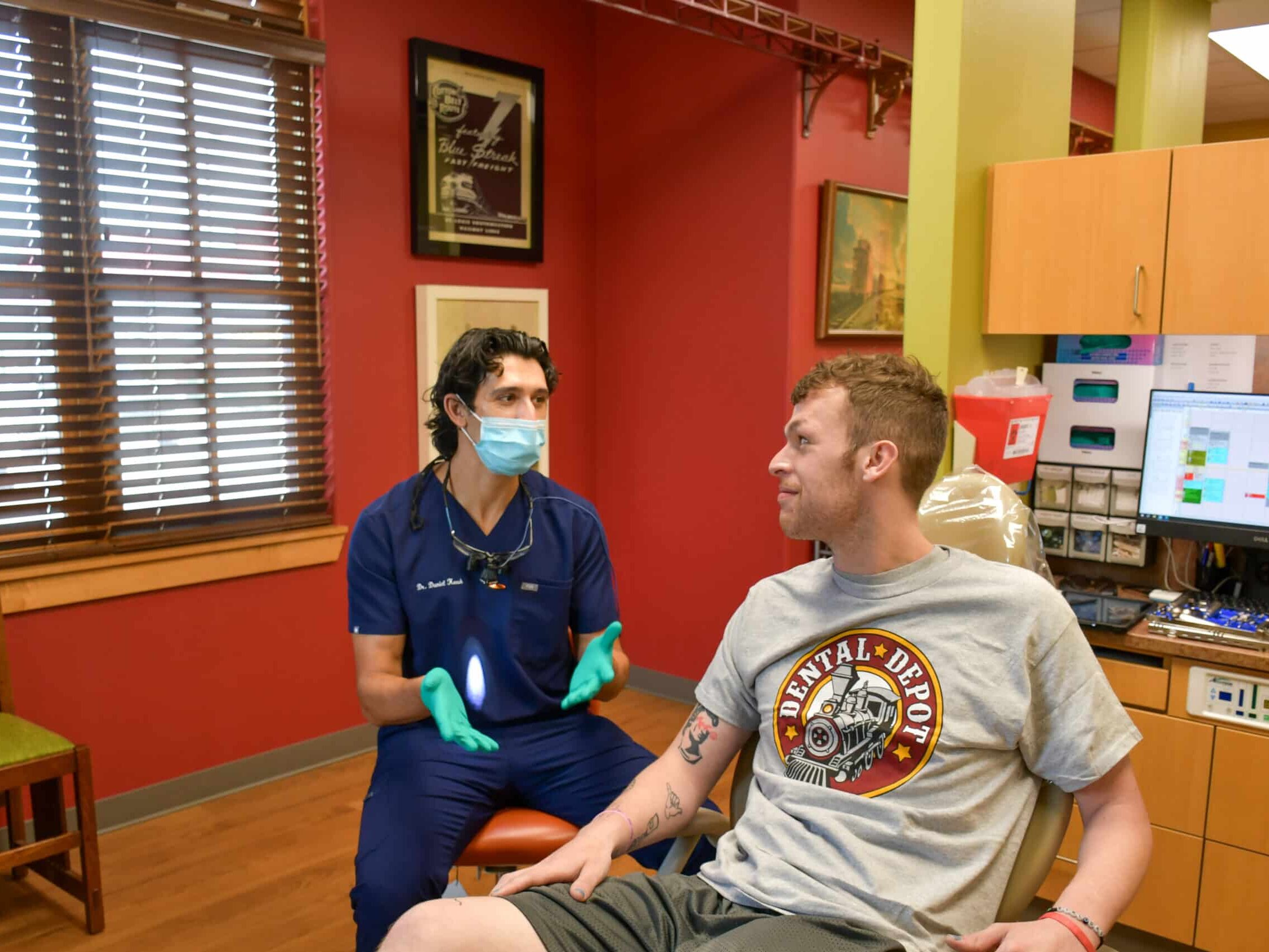Physical Address
304 North Cardinal St.
Dorchester Center, MA 02124
Physical Address
304 North Cardinal St.
Dorchester Center, MA 02124

Rewrite the content and keep the original meaning and format, and add 5 more H2, the content is “
The dentist’s office can be an uncomfortable environment to be in, especially if you’re there for more than just a regular cleaning and check-up. And while there are plenty of ways to make your visit more comfortable – like these tips for managing your dental anxiety – there’s another factor at play: your blood pressure.
Hypertension, more commonly known as high blood pressure, is a chronic illness affecting more than a billion people worldwide and is especially prevalent in Americans – 80 million, to be exact. Hypertension is asymptomatic, meaning that unless you’re regularly checking your blood pressure, you may not know you have it until it’s too late.
The other name for hypertension? The “silent killer.” In fact, research conducted by the National Center for Biotechnology Information (NCBI) reports that undiagnosed and untreated hypertension can shorten lifespans by 10-20 years.
The American Heart Association recommends that adults have regular blood pressure screenings with readings of <120/80. When your blood pressure begins to climb, it’s important to get in contact with your primary care physician to regularly monitor and control your hypertension with antihypertensive medications.
An important part of every dental check-up should include reviewing your medical history and updating us on any changes or new medications you may be on – especially those used to treat hypertension. Many antihypertensive medications interact with the numbing agents most dentists use and will need to be adjusted accordingly to keep you out of pain and safe.
Your dental visit isn’t just about your teeth—it’s about your health as a whole. That’s why dentists ask about medications and health conditions, including hypertension.
Many people with high blood pressure take antihypertensive medications, which can interact with local anesthetics commonly used in dental procedures. Some of these medications can also affect how your body responds to stress, bleeding, and healing.
By updating your dentist on your condition and medications, they can adjust your treatment plan safely—such as selecting anesthetics that don’t elevate blood pressure or monitoring you more closely during your visit.
Even a little anxiety in the dental chair can cause your blood pressure to spike. That’s why most dentists check your blood pressure before performing treatment—especially for extractions, root canals, or surgery.
If your reading is too high, your dentist may decide to delay treatment until you’ve seen your primary care physician. This is for your safety—high blood pressure increases the risk of serious complications like:
At Dental Depot DFW, your comfort and safety always come first. If your blood pressure is elevated, our team will explain your options and help you reschedule after you’ve followed up with your doctor.
Local anesthetics are commonly used to numb the area being treated—and many contain epinephrine, a medication that helps prolong numbness and reduce bleeding. However, epinephrine also constricts blood vessels, which can increase your blood pressure temporarily.
This effect may be mild for most patients, but for someone with uncontrolled hypertension or certain heart conditions, it can be more dangerous. If you’re on blood pressure medication or have a history of cardiovascular issues, your dentist may choose an anesthetic without epinephrine or use a lower dose to keep you comfortable and safe.
Because high blood pressure often shows no symptoms, having it checked at the dentist is another opportunity to catch it early—especially if you haven’t had a regular screening with your primary care doctor.
A routine blood pressure check could alert you to a potential problem before it becomes a serious one. And since many people see their dentist more often than their physician, this simple step can go a long way toward improving your overall health.
Dentists are healthcare providers, too—and we’re here to support your overall wellness. If you have high blood pressure, be sure to talk with your dentist about it. It could affect the medications used during your visit, your treatment plan, and even your risk for complications.
If you haven’t had your blood pressure checked lately, your next dental appointment might be a great place to start.
”